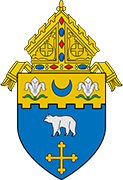Retirement Plan Assets
“when you hold a banquet, invite the poor, the crippled, the lame, the blind; blessed indeed will you be because of their inability to repay you. For you will be repaid at the resurrection of the righteous.” Luke 14:1,7-14
As Christian stewards, we share the responsibility of making our Church a true community of faith and a vibrant source of service to the larger community. This includes providing financial support for today’s needs, and building a firm financial foundation for tomorrow.
Beneficiaries of Retirement Plan Assets
A gift of all or a portion of your remaining assets from an IRA, 401(k), 403(b) or other retirement plan may be one of the smartest and least “expensive” ways to favor your parish, school, ministry or the diocese.
Very substantial sums are currently invested in retirement plans. For many people, their retirement plan may be the principal asset at the end of their life.
Tax Treatment
Taxable to your heirs
In addition to inheritance tax for large estates (more than $11.58 million in 2020), if retirement plan assets pass to family members other than the spouse, the heir pays income tax on the funds they receive. If an heir is in the 22% tax bracket when he/she receives retirement plan assets from a parent, then a 22% tax will be levied the funds they receive each year.
Beginning in 2020, your heirs have to take out all retirement plan funds within 10 years rather than stretching payments over their life expectancy. Options for reducing the potential tax burden for your heirs include:
- Buy life insurance payable to the beneficiaries to replace what they would have received from your IRA (or other retirement plan).
- Designate a charitable remainder trust to receive the retirement plan assets. Your heirs receive lifetime income and the remainder goes to charity.
Tax free to your parish, school or other ministry
If your heirs are provided for, by-pass taxation completely and give your retirement plan assets directly to your parish, school or other ministry.
Most retirement fund managers provide “beneficiary designation forms” available through a website or by calling the manager of the funds. The proper legal name of your parish ( Catholic Church) should be listed on the beneficiary designation form with a portion or amount of the fund to be designated for the benefit of the parish or ministry.
Please consult with your own attorney and other professional advisors regarding your personal tax and financial situation.


